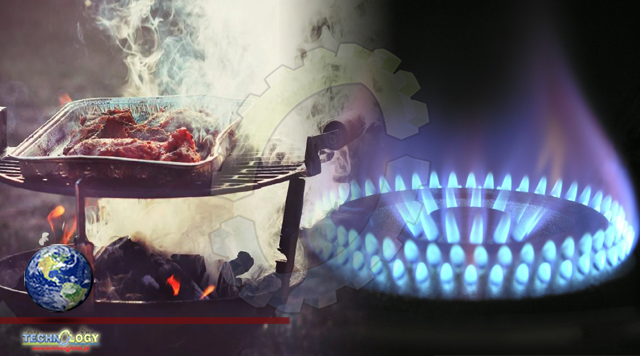A new study now finds that particulate emission emitting from cooking stoves stay in the atmosphere for a far longer time than what we had earlier thought.

These cooking emissions (particulate emission), which is about 10 percent of particulate pollution in the UK, are able to survive in the atmosphere for over several days rather than disintegrating and being dispersed.
As per a statement, the team from the University of Birmingham collaborated with experts from the University of Bath, the Central Laser Facility and Diamond Light Source to conduct this study. The results are published in the Royal Society of Chemistry’s Faraday Discussions.
Research shows that cooking emissions – which account for up to 10 per cent of particulate pollution in the UK – are able to survive in the atmosphere over several days, rather than being broken up and dispersed.
They demonstrated how these fatty acid molecules react with molecules found naturally in the earth’s atmosphere and a coating or curst is formed outside the particles that protect the fatty acid inside from gases like Ozone, which would otherwise break them up.
The statement adds that this is the first time that scientists have been able to recreate the process in a way that enables it to be studied in laboratory conditions, using X-ray beam at Diamond Light Source to follow the degradation of thin layers of molecules representative of these cooking emissions in intricate details.
According to lead author Dr Christian Pfrang, the emissions, which come particularly from cooking, make up a significant proportion of air pollution in cities. Known as PM2.5, it accounts for 10 percent of pollutants in London. It can be as much as 22 percent in China as well, Pfrang adds.
Pfrang further states that the implications of the study should be taken into city planning, but one should also look at ways air can be better filtered, especially in fast food industries, where regulations do not cover air quality impacts from cooking.
Originally published at First post